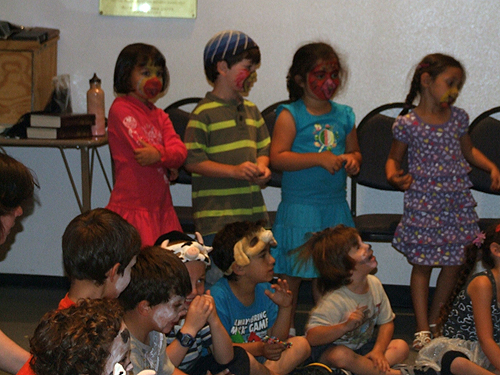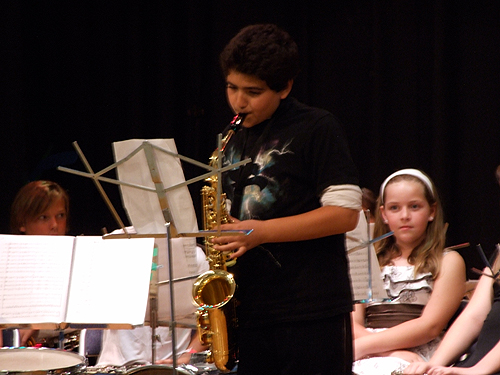By Donald H. Harrison

SAN DIEGO– Most of the focus at schools at this time of the year is on the annual rite known as the graduation ceremony, because, wherever it is held, it typically involves a major portion of the student body in symbolic culmination of an important chapter in their lives.
The graduation ceremony includes numerous photo-worthy rituals: the procession of new graduates in their caps and gowns; the clever messages that they sometimes wear on their caps; the signs of congratulations and love that some people hold up in the audience as the procession passes by; the multi-colored robes of the faculty and distinguished guests; the speech by someone fairly famous; the moments the graduate’s name is called and he or she receives a certificate and a handshake; and the final photo-op when many of the graduates at once throw their caps into the air.
No matter how often we watch a commencement, we like to see it again, just as we love other rituals. One of our favorite rituals in San Diego, for example, is watching families greet the sailors aboard a ship that has been away on deployment for six months or more. The sailors are lined up in their dress whites at the rail of the ship for the docking; the families point at their loved ones from the ground below; there are calls of “there he is!”; at the moment of reunion, long separated spouses and lovers embrace and kiss–“who cares who is watching!,” and sometimes, there are tear-jerking introductions, as when a sailor father meets his newborn baby for the first time: “Look, isn’t she beautiful: this is your daughter.”
And for San Diegans, there is now another ritual, watching home-grown contestants from our county advance to the finals of the television show, American Idol. Three years ago, we had Adam Lambert (who came in second) and now Jessica Sanchez of Chula Vista will compete next week in the final two. The show is filled with rituals, such as the singing, the comments by the judges, the dimming of the lights, the announcement of who will stay, and who will go. Some of it is hokey, but we in San Diego keep coming back to watch, filled with pride and anticipation.
Clearly not all ceremonies are as grand as graduation, or the return from deployment, or singing for an audience of millions on American Idol. But nevertheless important and in some cases formative are the kinds of special moments that have filled my life this past week as a college instructor and as a grandfather.
At Grossmont College, a two-year community college with approximately 20,000 students in the neighboring city of El Cajon, my journalism students put out their last Summit magazine of the semester. The issue, which can be seen on line, had a special sections on the Literary Arts Festival, which was a program put together by the English department spotlighting classic American poet Edgar Allan Poe and contemporary authors Sandra Cisneros and Tim O’Brien, who visited the campus. The magazine also featured reflections of three students studying English as a Second Language about customs in their home countries of Iraq and Russia. And there was also a photo section showing some of the works in the student art show that was on exhibit at the Hyde Art Gallery. While not so grandiose as a graduation ceremony, each of these events — a festival, an art show, and published essays in a new language — represented special moments of accomplishment for Grossmont students and faculty. So, too, for that matter, did the publication of the monthly magazine.
Later in the week, Nancy and I attended a skit put on by our grandson Sky’s preschool class at Soille San Diego Hebrew Day School about the Little Red Hen. In this case, four students were little red hens who wanted to plant, harvest, pound and eat the wheat. In each instance they went around a circle and asked other animals whether they would help. When it came to doing the work, the other animals said “no,” but when it came to eating the bread made from the wheat the animals were more than willing to do so. Of course, the red hens drew the line there. Because the other animals (including Sky in his dog mask) had refused to labor, they would not share in the rewards. At one point, Sky remembered a line that his classmates apparently forgot, and after he said it, he looked up to his teacher and, breaking character, noted, “I was the only one who said it!” which drew a laugh from the audience. All this was a big step in Sky’s development. The year before (as a four-year-old), Sky had such stage fright, he absolutely refused to participate in a class play.

The following day, Shor, our 11-year-old grandson, performed in a wind-instrument concert at Marvin Elementary School, where he is a fifth-grade student. On the saxophone, he played a riff from “The Pink Panther” — the first student to get up in front of the friendly audience to do a solo. Once again, the moment represented tremendous progress for Shor from earlier in the school term. At his last concert, Shor declined a solo opportunity because he felt unready.

Such are the happy rituals that gladden our hearts and make us feel optimistic about the future. If only our politicians could understand that what we, the people, yearn for are positive messages, not negative ones. In San Diego, right now, we have a primary election for mayor, in which four well-qualified candidates are running, each with his or her own claim to fame. In alphabetical order they are Carl DeMaio, a conservative San Diego City Councilman; Bonnie Dumanis, a moderate district attorney; Nathan Fletcher, a moderate state Assemblyman, and Bob Filner, a liberal congressman.
Each can point to a record of accomplishment. Each has interesting ideas for the city. Yet, the airwaves are filled with attack ads, particularly against DeMaio and Fletcher. We see these ads over and over again, and each time we become just a little more cynical about the political process. How much greater service these candidates could perform by agreeing to disagree with civility, and to discuss issues rather than personalities. Their commercials demeaning each other sad bad examples for our children and show contempt for our intelligence.
Yet, even in the cacophony of charge and counter-charge, those of us who believe that America is strengthened by its diversity, have something we can take pride in. Two of the candidates are Jewish (Dumanis and Filner), two are gay (DeMaio and Dumanis), one has broken away from the Republican party to become an independent (Fletcher), two are Republicans (DeMaio and Dumanis), one is a Democrat (Filner), one candidate is a veteran (Fletcher), and one candidate is a woman (Dumanis), so no matter who wins, some group may feel more empowered than perhaps it did before.
*
Harrison is editor of San Diego Jewish World. He may be contacted at donald.harrison@sdjewishworld.com